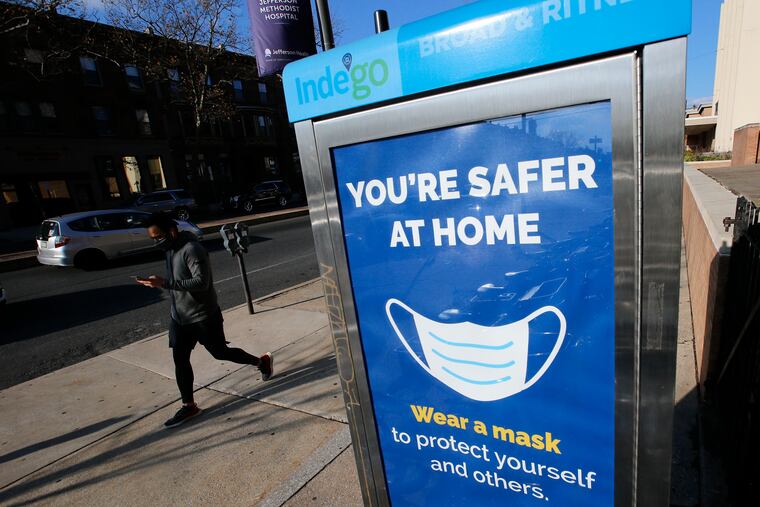Use this checklist before seeing people again after having COVID-19
You get sick. You rest up at home. Several days pass, and you’re thankfully starting to feel better. Now is it okay to start seeing other people again?

You get sick. You rest up at home. Several days pass, and you’re thankfully starting to feel better. Is it OK to start seeing other people again?
It’s a question being asked in households worldwide, and it was one posed to our Curious Philly platform. Reader Ron Schwartz writes: “If you have COVID[-19] and have recovered to the point of no symptoms, what is the protocol to find out you have recovered?”
None of us want to spread the virus. Here’s what to know about isolation times at home.
» READ MORE: Got a question for one of our reporters? Ask us through Curious Philly.
When can I be around others after I had, or likely had, COVID-19?
According to the Centers for Disease Control and Prevention, if you think or know you had COVID-19, and developed symptoms, you can be around others after:
10 days since symptoms first appeared and,
24 hours with no fever without the use of fever-reducing medications and,
Other symptoms of COVID-19 are improving.
You must meet all three criteria. But what does that last point really mean?
“‘Other symptoms improving’ could mean improvement in shortness of breath, improved nasal congestion or cough, and improved sore throat,” says Dr. Eric Sachinwalla, medical director of Infection Prevention and Control at Einstein Medical Center Philadelphia. “Sometimes symptoms like cough or loss of smell have been reported to linger for some time, but as long as the person is improving overall, that’s what’s important.”
It’s important to ride out the full 10-day window at home even if your symptoms completely disappear after a few days. It doesn’t matter if you’re no longer coughing or running a fever: You could still be contagious.
“Studies have shown that for people with mild to moderate disease, after this 10-day threshold is when they no longer see virus that’s capable of replicating,” says Neal Goldstein, assistant research professor of epidemiology and biostatistics at Drexel University. “If the virus is not replicating, then there’s no risk to transmit it.”
If you meet all of the criteria, you don’t need to get tested unless your doctor recommends it.
For people who test positive for COVID-19 but never develop symptoms, the CDC says you can be with others after 10 days have passed since you received the test results.
» READ MORE: Can I quarantine with friends if we were all exposed?
Guidelines are different if you became severely ill or have a severely weakened immune system.
If you develop severe illness from COVID-19, you may need to stay home longer than 10 days — up to 20 days — after symptoms first appeared, says the CDC. This also applies if you’re immunocompromised or have a weakened immune system.
“If you are more ill, you likely have more virus in your body, and if you’re immunocompromised, the body can’t mount the same immune response,” says Goldstein. “It takes your immune system longer to clear the virus and therefore you need to isolate longer.”
According to the CDC, you may also need to get tested before you can safely be around others. Talk with your doctor to make a plan about moving forward.
» READ MORE: Can I see my friends and family if I get tested for COVID-19 first?
Anyone who’s exposed needs to quarantine.
If you had close contact with someone with COVID-19, you should stay home for 14 days after your last exposure to that person.
However, there is an exception. You don’t need to stay home if you:
Had COVID-19 within the previous 3 months and,
Have recovered and,
Remain without COVID-19 symptoms (like cough and shortness of breath).
Experts:
Dr. Eric Sachinwalla is the medical director of Infection Prevention and Control at Einstein Medical Center Philadelphia.
Neal Goldstein is an assistant research professor of epidemiology and biostatistics at Drexel University.
» READ MORE: How to do everything better right now: A collection of our most useful stories